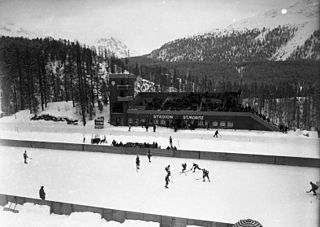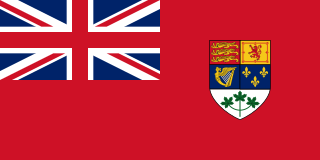
The Winter Olympic Games, also known as the Winter Olympics, is a major international multi-sport event held once every four years for sports practiced on snow and ice. The first Winter Olympic Games, the 1924 Winter Olympics, were held in Chamonix, France. The modern Olympic Games were inspired by the ancient Olympic Games, which were held in Olympia, Greece, from 776 BCE to 394 CE. The Baron Pierre de Coubertin of France founded the International Olympic Committee (IOC) 1,500 years later in 1894, leading to the first modern Summer Olympic Games in Athens, Greece in 1896. The IOC is the governing body of the Olympic Movement, with the Olympic Charter defining its structure and authority. The original five Winter Olympic Sports were bobsleigh, curling, ice hockey, Nordic skiing, and skating. The Games were held every four years from 1924 to 1936, interrupted in 1940 and 1944 by World War II, and resumed in 1948. Until 1992, the Summer Olympic Games and the Winter Olympic Games were held in the same year. A decision to change this was made in 1986, when during the 91st International Olympic Committee session, IOC members decided to alternate the Summer Olympic Games and the Winter Olympic Games on separate four-year cycles in even-numbered years. Also, at that same congress it was decided that 1992 Winter Olympics would be the last to be held in the same year as the Summer Games and that to change the rotation, the games that would be held in 1996 would be brought forward by two years, being scheduled to 1994. After those games, the next were to be held in 1998 when the four-year Olympic Cycle resumed.

The 1948 Winter Olympics, officially known as the V Olympic Winter Games and commonly known as St. Moritz 1948, were a winter multi-sport event held from 30 January to 8 February 1948 in St. Moritz, Switzerland. The Games were the first to be celebrated after World War II; it had been twelve years since the last Winter Games in 1936.

The 1928 Winter Olympics, officially known as the II Olympic Winter Games and commonly known as St. Moritz 1928, were an international winter multi-sport event that was celebrated from 11 to 19 February 1928 in St. Moritz, Switzerland.

The 1992 Winter Olympics, officially known as the XVI Olympic Winter Games and commonly known as Albertville '92, were a winter multi-sport event held from 8 to 23 February 1992 in and around Albertville, France. Albertville won the bid to host the Winter Olympics in 1986, beating Sofia, Falun, Lillehammer, Cortina d'Ampezzo, Anchorage, and Berchtesgaden. The 1992 Winter Olympics were the last winter games held in the same year as the Summer Olympics. The Games were the fifth Olympic Games held in France and the country's third Winter Olympics, after the 1924 Winter Games in Chamonix and the 1968 Winter Games in Grenoble. This games was the first of two consecutive Olympic games to be held in Western Europe, preceding the 1992 Summer Olympics in Barcelona, Spain.

The 1952 Winter Olympics, officially known as the VI Olympic Winter Games and commonly known as Oslo 1952, were a winter multi-sport event held from 14 to 25 February 1952 in Oslo, the capital of Norway.

Figure skating at the 1928 Winter Olympics took place at the Olympic Ice Rink in St. Moritz, Switzerland, between 14 and 19 February 1928. Three figure skating events were contested: men's singles, ladies' singles, and pair skating.

At the 1928 Winter Olympics in St. Moritz, four speed skating events were scheduled, all for men, but medals were only awarded for three events, because the 10.000 m event was not completed. The Allround event, which was only organized in 1924, was removed from the program. The competitions were held on Monday, 13 February 1928 and on Tuesday, 14 February 1928.
At the 1924 Winter Olympics in Chamonix, five speed skating events were contested, all for men. The competitions were held on Saturday, January 26, 1924, and on Sunday, January 27, 1924. Charles Jewtraw won the first gold medal of the 1924 Winter Games, and Clas Thunberg and Roald Larsen each won medals in all five events, with Thunberg winning 3 gold.
At the 1932 Winter Olympics, four speed skating events were contested. For the only time in the Olympic history, the speed skating were held as pack-style events, having all competitors skate at the same time. Women were allowed to compete in speed skating for the first time in history in a set of demonstration events. The IOC was reluctant to upgrade women’s events to full medal events, although the organizing committee of the Games advocated for the full inclusion of women’s events. The distances for women were 500 m, 1000 m and 1500 m. The pack-style racing would pave the way for short track speed skating, that would debut as a demonstration event at the 1988 Winter Olympics in Calgary before becoming an official Olympic event at the 1992 Winter Olympics in Albertville.
At the 1956 Winter Olympics, four speed skating events were contested. This was the last edition in which only men participated. The competitions were held from Saturday, 28 January, to Tuesday, 31 January 1956.

Canada competed at the 1948 Winter Olympics in St. Moritz, Switzerland. Canada has competed at every Winter Olympic Games.
The men's ski jumping at the 1928 Winter Olympics took place at the 70-meter (230 ft) Olympiaschanze in St. Moritz, Switzerland, on 18 February. Thirty-eight competitors from thirteen nations competed, with the event being won by Norway's Alf Andersen ahead of countryman Sigmund Ruud and Czechoslovakia's Rudolf Burkert.
The 500 metres speed skating event was part of the speed skating at the 1928 Winter Olympics programme. The competition was held on Monday, 13 February 1928. Thirty-three speed skaters from 14 nations competed.
The 500 metres speed skating event was part of the speed skating at the 1948 Winter Olympics programme. The competition was held on Saturday, 31 January 1948. Forty-two speed skaters from 15 nations competed.
The 1500 metres speed skating event was part of the speed skating at the 1948 Winter Olympics programme. The competition was held on Monday, 2 February 1948. Forty-five speed skaters from 14 nations competed.
The 5000 metres speed skating event was part of the speed skating at the 1948 Winter Olympics programme. The competition was held on Sunday, 1 February 1948. Forty speed skaters from 14 nations competed.
The 10,000 metres speed skating event was part of the speed skating at the 1948 Winter Olympics programme. The competition was held on Tuesday,3 February 1948. Twenty-seven speed skaters from eleven nations competed.
For the 1928 Winter Olympics in St. Moritz, Switzerland, a total of five sports venues were used. The main stadium hosted the figure skating, ice hockey, and speed skating events. Skeleton was first held at the Cresta Run. Bobsleigh was held at the bob run. St. Moritz itself served as cross-country skiing venue and the cross-country part of the Nordic combined event. Weather gave two events run at these games problems, creating the largest margin of victory in Olympic history for one and the cancellation of the other.

Speed skating at the 2020 Winter Youth Olympics took place at Lake St. Moritz in St. Moritz, Switzerland from 12 to 16 January 2020.










